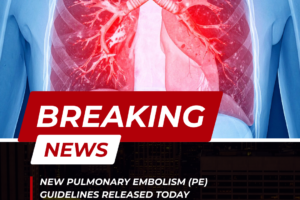Vital Questions
What vitals should I monitor when having chest pain?
If you are having unusual chest pain, it is always suggested to call 911 and not get into monitoring yourself.
Categories:
Should I be checking my own SpO2 after a blood clot?
It can be a good idea to monitor your own SpO2, but some patients don’t want to deal with the anxiety that comes with checking it. Monitoring it is a reasonable thing to do, but not necessary.
Categories:
What is a normal pulse rate?
Your pulse rate, also known as your heart rate, is the number of times your heart beats per minute. A normal pulse rate ranges from 60 to 100. You should know your usual pulse rate. People who exercise frequently tend to have lower pulses. A rate over 100 in conjunction with chest pain or shortness of breath should be taken seriously, and you should seek immediate care.
Categories:
What are normal SpO2 levels after having a PE?
The SpO2 reading on a pulse oximeter shows the percentage of oxygen in someone's blood. A reading over 95 is normal. Patients should be concerned when it gets under 90. Anything below 90 is not normal and you should seek immediate care.




